- HOME >
- TRAVEL IDEAS >
- History and Beauty in Central Itoigawa
- Spring
- Summer
- Autumn
- Winter
Time: 4 - 6 hrTransportation: Walk, BusChallenge Level: ★☆☆☆
Grab a walking map at Itoigawa Station and stroll through the old shops, sake breweries, shrines, temples and other treasures to be found in Central Itoigawa. Afterward, discover beauty on a spiritual level at the Tanimura Art Museum and Gardens.
- START
-
Itoigawa Station
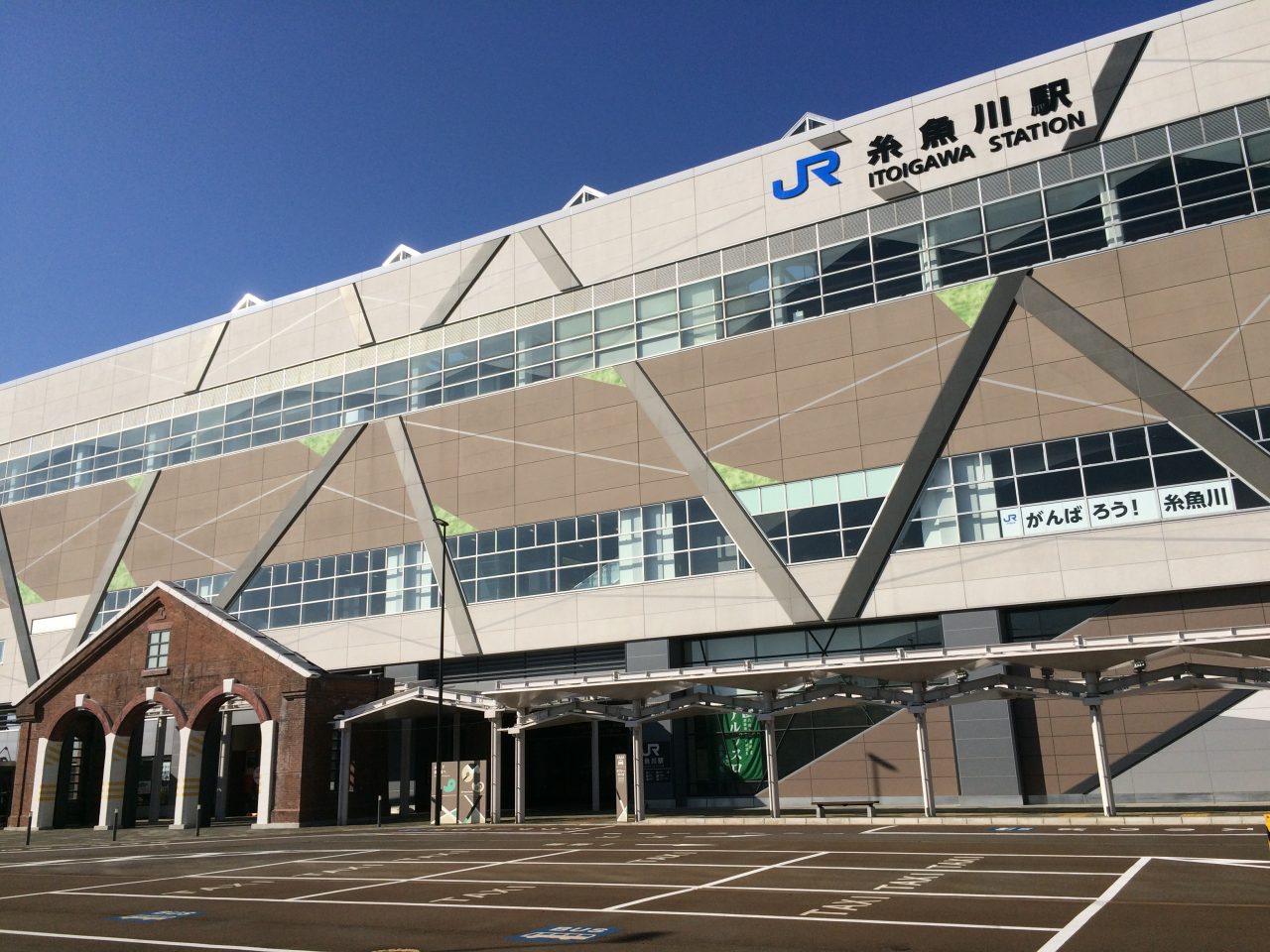 Walk
Walk
5minStart your visit at the Itoigawa GeoStation GeoPal Information Center in Itoigawa Station. Check out upcoming events as well as other tourist information. Make sure to grab a town walking map before you leave!
more -
Kaibo Park and Sea of Japan Lookout Arch
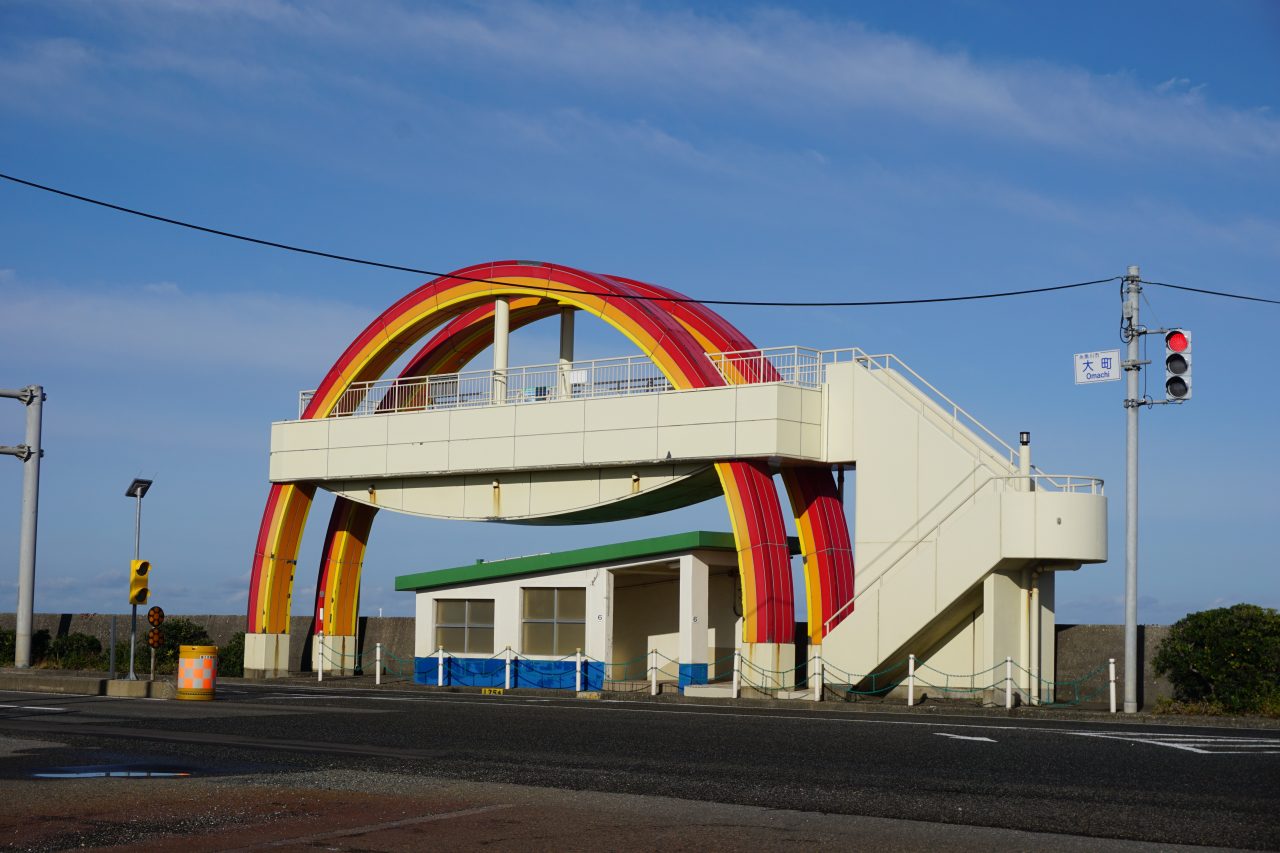 Walk
Walk
5minJust a short stroll from Itoigawa Station, this small park offers a fantastic view of the Sea of Japan and Central Itoigawa. It's a great first stop when exploring the downtown area.
moreNearby Attractions
・Gyofu Souma House ・Kotohira Shrine ・Shokakuji Temple ・Former Takano Photo Studio
-
Central Itoigawa
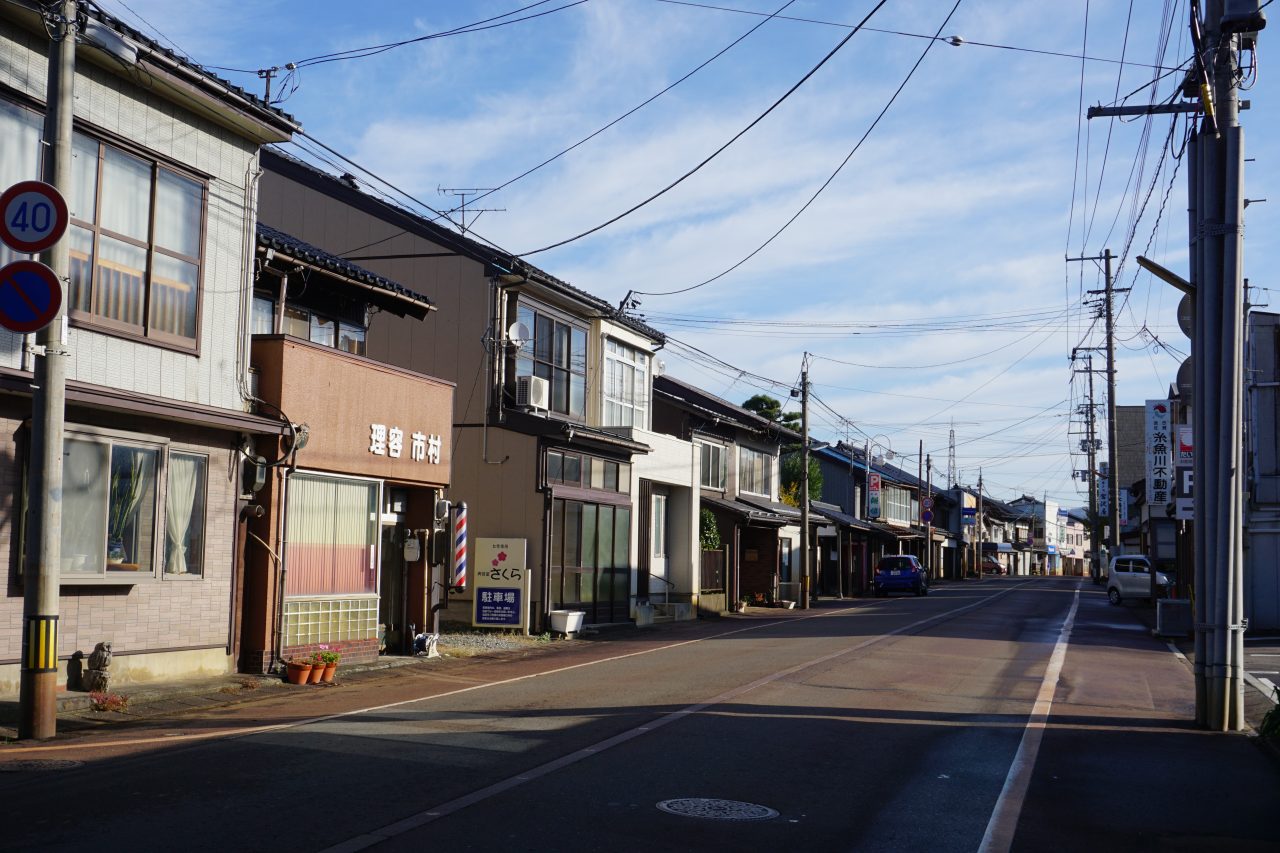 Walk
Walk
10minItoigawa is an ancient city which grew along multiple important trade routes. The Kaga Road was an important highway connecting the wealthy Kaga Province (Modern-day Kanazawa) in the west to Edo (Modern-day Tokyo) in the east. Meanwhile, the Matsumoto Road ran from the coast south into the mountains, where it served as an important lifeline delivering salt to the inner province of Shinshu (Modern-day Nagano), giving it its nickname, The Salt Trail.
The remnants of these roads can still be seen in Central Itoigawa today, with many of the local businesses tracing their history back to the Edo Period. Stroll along the winding temple and boutique-lined streets of Central Itoigawa and experience a town like no other.Nearby Attractions
・Gyofu Souma House ・Former Takano Photo Studio ・Salt Trail Plaza ・The Salt Trail
-
Amatsu Shrine
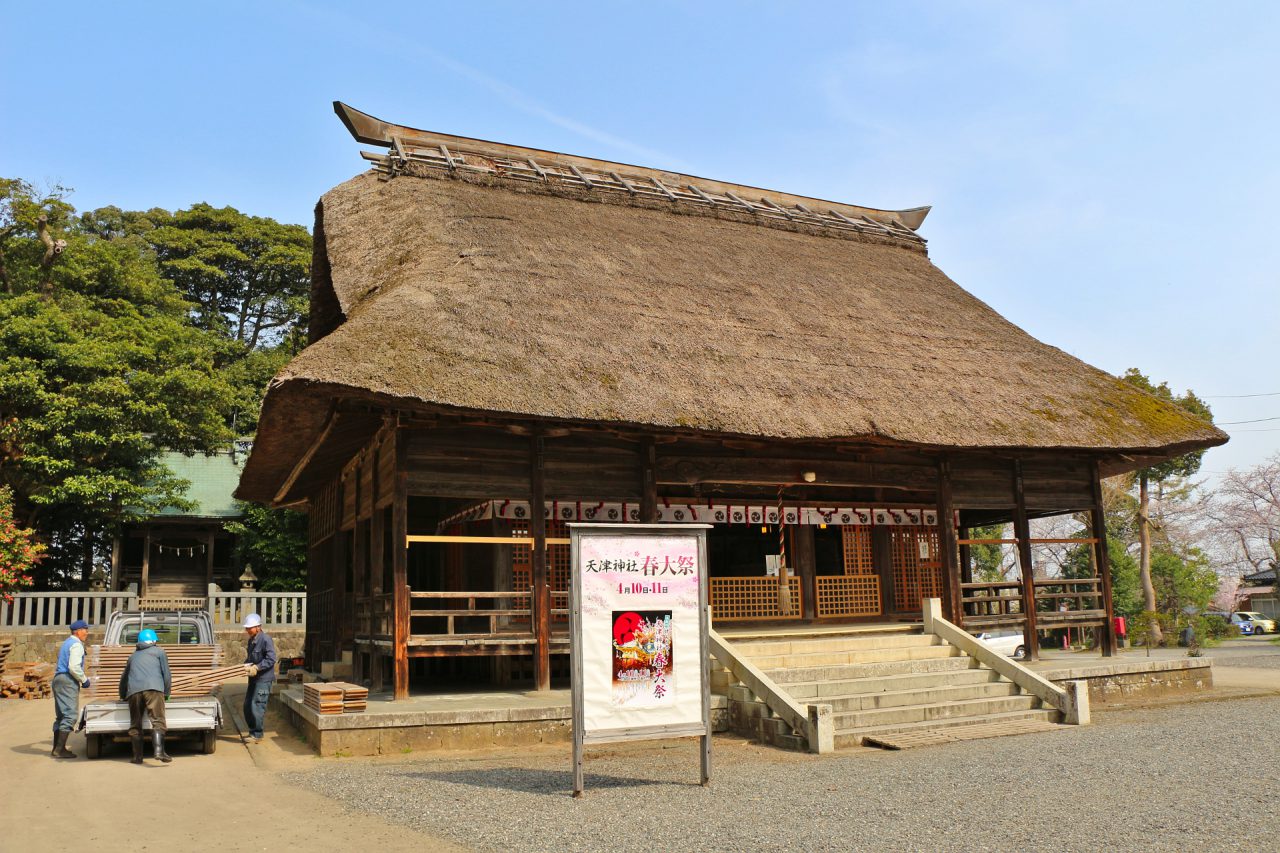 Walk
Walk
20minBus
3minSaid to have been founded over 2000 years ago, Amatsu Shrine is one of the oldest and largest shrines in Itoigawa. The current worship hall, with its distinctively pitched thatch roof, was last rebuilt in 1662.
more
Amatsu Shrine is famous for its Spring Grand Festival, the Itoigawa Kenka Matsuri (Itoigawa Fighting Festival), held each April 10 and 11.Nearby Attractions
・Itoigawa Museum of History and Folklore ・Itoigawa City Hall ・Kaneko Azalea Garden
-
Tanimura Art Museum and Gyoksuien Gardens
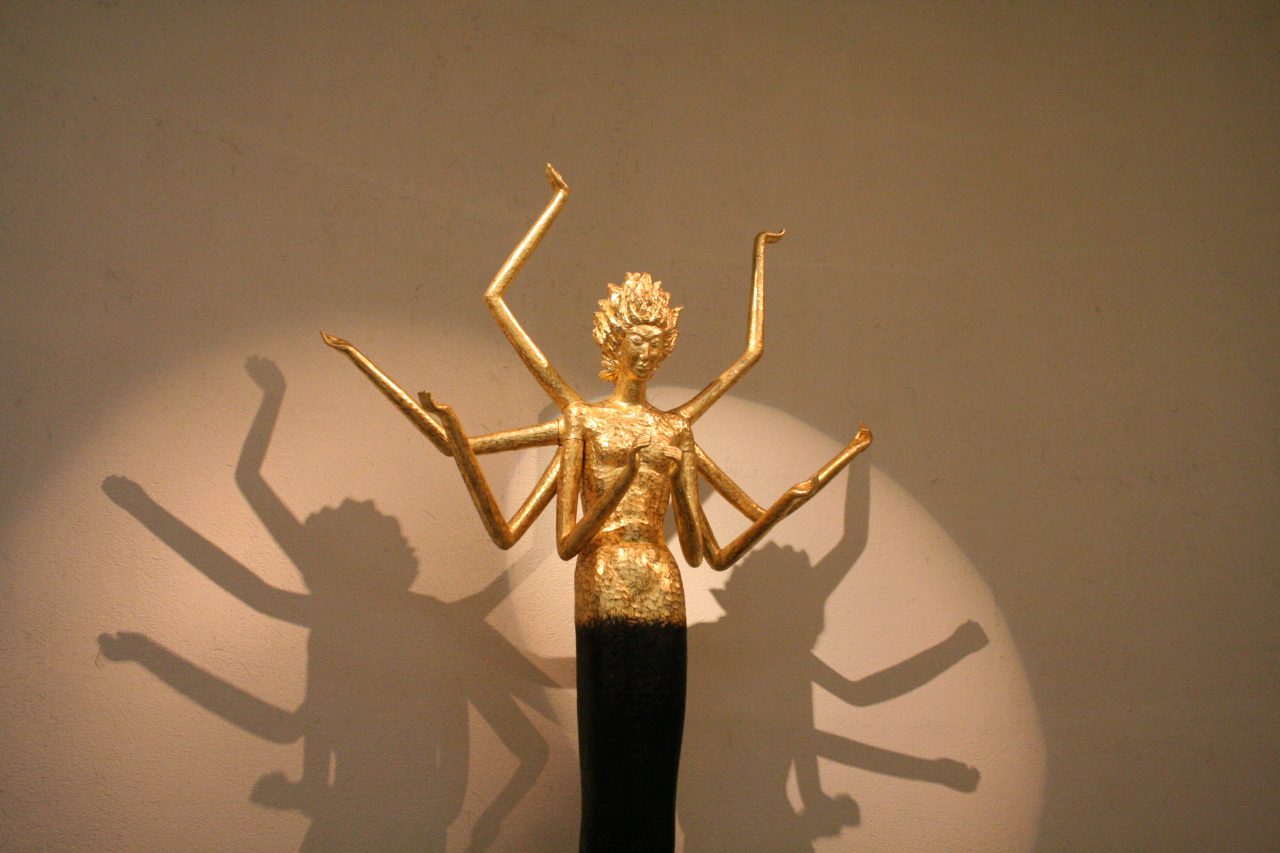 Walk
Walk
25minBus
4minThe Tanimura Art Museum was built in 1983 by a local businessman and patron of the arts. It was designed by Togo Murano, widely considered one of Japan's most influential architects and a recipient of the Order of Culture, an award conferred by the emperor to individuals who made significant contributions to Japanese art, literature or culture. The museum hosts a private collection of wooden Buddhist statues carved by Seiko Sawada, considered to be one of the greatest Buddhist sculptures of the modern era and another recipient of the order of culture.
more
Each room in the museum has been designed specifically to complement the statue displayed within, skillfully combining artificial and natural light in a way that changes subtly with the seasons and position of the sun to provide an atmosphere which feels less like a museum visit and more like a spiritual pilgrimage.
Next to the museum is the Gyokusuien Garden, a beautiful Japanese Garden created by Kinsaku Nakane, who was President of the Osaka University of Fine Art and widely considered one of the greatest landscape artists in Japan. The garden can be enjoyed in any season or weather seated at impressive Itoigawa jade tables inside an adjoining tea room while enjoying tea, coffee or other drinks paired with local sweets.Nearby Attractions
・Hisuien Gardens & Jade Art Museum ・Nanasha Shrine & Gohyaku Rakan ・För Agg Sweets & Cafe
-
Itoigawa Station
END -
After Your Trip
If Gyokusuien Gardens didn’t sate your appetite for beautiful gardens, stop by the nearby Hisuien Gardens & Jade Art Museum. These gardens, also designed by Kinsaku Nakane, are adorned with boulders of raw Itoigawa Jade and other local stones. Set along a hillside, the gardens are meant to be strolled through so they can be enjoyed from many perspectives. Make sure to visit the garden’s Jade Art Museum as well!
After getting back to Itoigawa Station, take the Miyama Park & Museums Line (#10) Bus to Miyama Park, a large, beautiful public park sitting atop a river terrace overlooking Central Itoigawa and the Himekawa River Valley. The park is home to the Itoigawa UNESCO Global Geopark’s Fossa Magna Museum and the Chojagahara Archaeological Museum, where you can learn more about Itoigawa’s beautiful geological diversity and ancient history.
